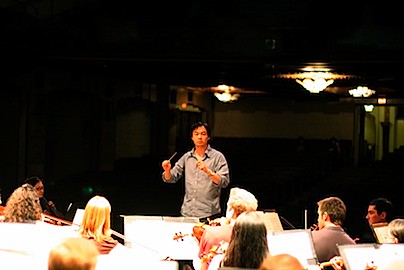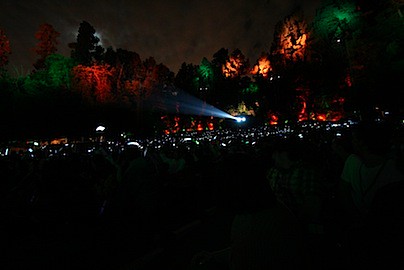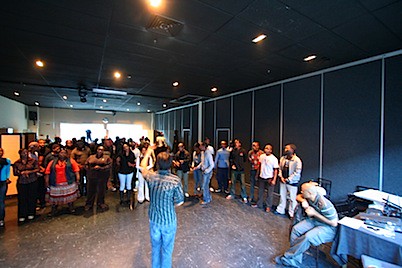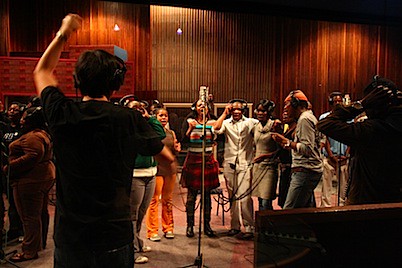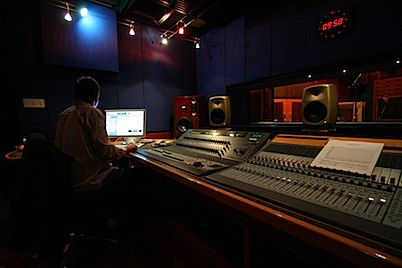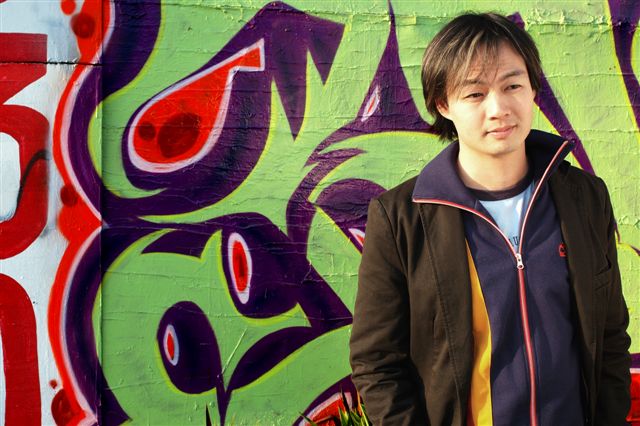Mark, a student at the Berklee College of Music, had this question for me recently:
I've come to a point where I realize that I've somehow lost my intuition for music. I just was wondering if you've ever experienced a time in your career where you've thought that you couldn't write music anymore, because you had to absorb too much knowledge and transcribed too much soundtracks?
How do you find a balance between writing from the soul and technique? I do very hard to find my balance. When I look back in the earlier days I did compose only from the soul, now somehow I do the complete opposite.
It's a bit of a tough question. I can't say there was ever a time in my career when I thought I couldn't write any more music, but there are definitely times when I feel like I'm on fire and everything I turn out is gold, and times when I'm frustrated and grinding my gears. Everyone you talk to in any sort of creative art will tell you this happens all the time, though, and the best thing you can do is just try to work through it.
The most important thing is to always just keep writing music. The worst thing that can happen is for you to fall into some sort of creative slump, where you're prevented from writing music by the mere fear that what you write is going to be bad. This is how creative careers go down in flames--when you find yourself so intellectually stifled by your own frustrations that you can't bring yourself to start creating.
I've always said that you have to write a lot of bad music, before you start writing good music. It's almost like you have to get the bad stuff out of your system. I think that your college days will be particularly confusing because you're bombarded with expectations from your teachers and peers, and pulled in many different creative directions. You don't really have a voice yet--you're too young, frankly. You won't have a voice until well into your thirties, forties, or later. Don't sweat it, it will come.
As to your second question, I think one should ALWAYS write from the soul. Technique is certainly very important, but it should never be viewed as a replacement for writing from the soul--nor should it be seen as being in competition. Rather, it's something that should supplement what you do. I almost always write exclusively from the soul, and then apply technique and craft to honing the details. The broad swaths of a composition are written instinctually--things like fine tuning counterpoint, orchestrations, voicings, etc. can happen later, when you can take your time to bring the full bearing of your training on the small details, without fear of losing the big picture.
However, if at the moment you're composing based solely on technique, don't worry about it--it's what you SHOULD be doing. You're in school. You SHOULD be absorbing as much technique as you can, and be crafting technique-based music for the purpose of internalizing all the techniques you're learning. Do it for as long as you can bear it, and don't worry if you feel like you're losing your instinct. You're NOT losing your instinct--it's just taking a back seat for the moment, while you absorb different techniques that will serve well as tools in the future. Eventually you'll rediscover your instinct, develop a confidence in your own style, and start writing instinctually again. And on that day, since you've already put in the hours learning all the techniques and crafts, you'll find that they're useful tools in your toolbox--tools that you can whip out as needed, or put away when you don't feel like using them. Or better yet, they'll have subconsciously worked their way into your instinct, and the music you write will be both soulful AND technically sound.
So don't worry for now. Everything will be okay in the end, I promise. Hope that helps?
Labels: Composition Principals, Teaching




